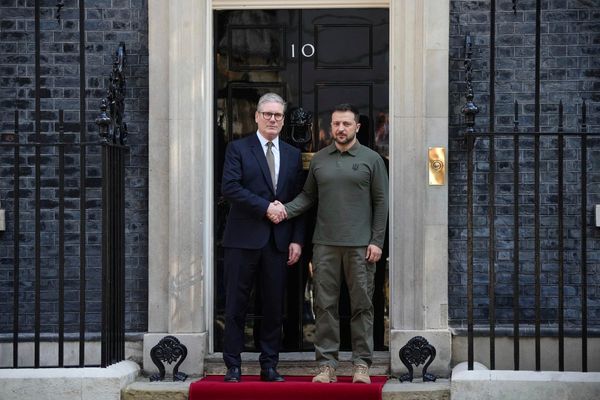
Record numbers of UK manufacturers are raising prices as the war in Ukraine gives an added twist to inflation, the latest snapshot of industry has shown.
Adding to fears that Britain is set for a prolonged period of cost-of-living pressures, the employers’ lobby group, the CBI, said 82% of firms were expecting to raise prices in the coming months against just 2% predicting a fall.
The balance of 80% in March was up from 77% and the highest since the CBI began asking the question in its industrial trends survey in 1975 – a previous period in which soaring energy costs prompted a surge in the annual inflation rate.
Cost pressures have been building on manufacturers for the past year, with the March 2022 balance of 80% expecting to raise prices up from 20% a year ago.
Unless absorbed by retailers’ profit margins, prices charged by manufacturers provide early warning signs of prices that will eventually be paid by consumers.
News of the increase in the strains on industry came before Wednesday’s release of the official inflation figures from the Office for National Statistics and the spring statement on the economy from the chancellor, Rishi Sunak.
The CBI called on Sunak to take the opportunity to help energy-intensive companies and consumers struggling with cost of living pressures. Annual inflation stood at 5.5% in January but is expected to be close to 6% in February and to rise further to about 8% in April.
The CBI said cost and price pressures were coming at a time when industry’s order books – both for domestic and overseas customers – were strong. Total order books matched the record level seen last November, while export order books were reported to be above normal to the greatest extent in three years.
Anna Leach, the CBI deputy chief economist, said: “This survey highlights strong order books and output growth, but the cost pressures facing manufacturers have been amplified by the conflict in Ukraine.
“The government must use tomorrow’s spring statement to provide relief to both energy-intensive industries and vulnerable consumers.
“To deliver a fundamental reset to UK growth, we need to see significant action to incentivise investment, a key driver of productivity growth and the only way to sustainably increase real wages. A permanent successor to the super deduction will ensure that economic resilience and growth go hand in hand.”
Sunak announced the super deduction – a two-year tax break to encourage firms to invest – in his March 2021 budget. It allows firms to offset 130% of capital spending on plant and machinery against profits but the scheme comes to an end next year.
Samuel Tombs, UK economist at Pantheon Macro said the CBI survey was consistent with core producer output price inflation – the cost of goods leaving factory gates – rising to about 12% in the near term, from 9.2% in January.
“Note too that many manufacturers will not have experienced yet the rise in energy costs triggered by Russia’s invasion of Ukraine when they were surveyed in early March, so output price inflation might strengthen even further over the coming months”, Tombs said. “With the incomes of end consumers unlikely to rise as quickly as the price of manufactured goods, we continue to expect the recovery in manufacturing output to falter in the second half of this year.”







